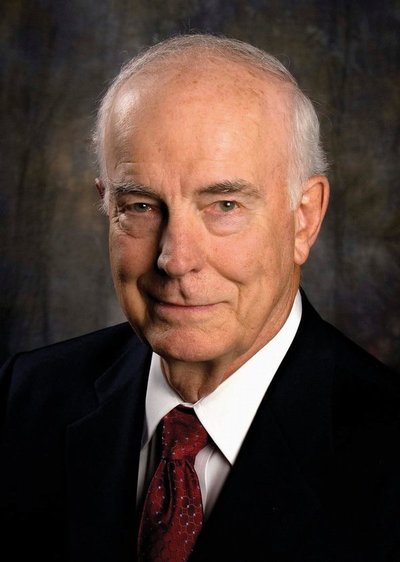May 31, 2007
Dan Evans
Dan Evans came close to becoming the vice president of the United States twice, but luckily for his home state, it didn’t work out either time. Instead, he filled other roles and became perhaps the most popular and influential political figure in the state’s history. And now he’s been chosen the Alumnus Summa Laude Dignatus — the highest honor the University bestows on a graduate.
Evans’ first brush with the vice presidency came in 1968, when Richard Nixon strongly hinted that a Dan Evans endorsement at the Republican National Convention would be repaid with a vice-presidential nod. Evans thanked him and proceeded to support the lost-cause candidacy of Nelson Rockefeller. Then, in 1976, many influential people wanted then-President Gerald Ford to choose Evans as his running mate in his bid to be elected in his own right. Ford chose Senator Bob Dole instead, and the two lost a close election to Jimmy Carter.
Evans doesn’t regret that he didn’t wind up as vice president, and maybe later as president. Though he says that he felt qualified for the nation’s top office and believes he could have put together a strong administration, he also admits that he “didn’t really thirst for the presidency” the way others have. His first priorities have always been his family and his home state.
And he never had much patience with the back-scratching and superficialities of national politics.
Washington, D.C.’s loss has been the other Washington’s gain. In addition to three successful terms as governor, Evans has given the state five years of able representation in the U.S. Senate, eight years in the state House of Representatives, six years as president of The Evergreen State College, 12 years on the UW Board of Regents, and a lifetime of loyalty.
“He just lives integrity,” says Sandra Archibald, dean of the Daniel J. Evans School of Public Affairs. “We call him a compass, a moral compass for future leaders. One of the main reasons this school was named after Dan is that he has this blend of lofty ideals and a practical approach. It’s a combination that’s really, really rare in a politician. He has the ideals, but he knows how to get things done.”

